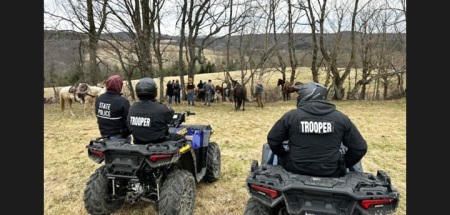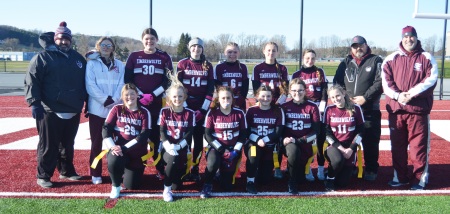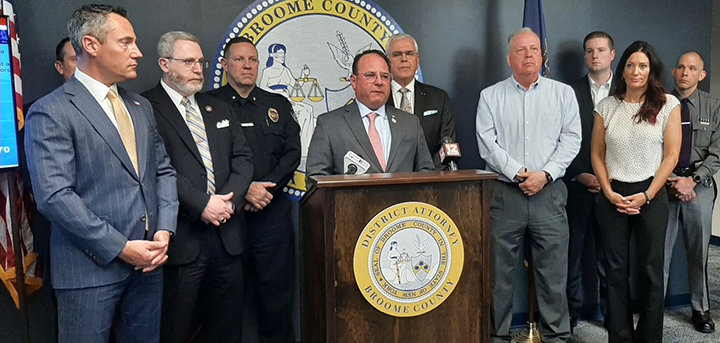Keeping The Tradition Going
Published:
November 27th, 2019
By:
Eric Davis
After the opening weekend of firearms season, I would say day with the most deer hunters afield is easily Thanksgiving.
The combination of the holiday, meaning a lot of people have the day off from work, plus the tradition of hunting in the morning before having either lunch or dinner with family and friends causes a surge in the blaze orange that is in the woods.
While the style of hunting may vary with each hunting group, seeing people out enjoying the outdoors is refreshing to see. However, with the number of hunters declining it is becoming more important to do things to help bring new hunters into the field.
If you are not familiar with the R3 Initiative, here is a summary of what it is. The three R’s stand for recruitment, retention, and reactivation. They are the three actions needed to create and keep new hunters in the hunting field. Recruitment covers getting people started up to the end of their first hunting experience. Retention is the period following a hunter’s first hunting experience where continued support from another hunter or hunters helps them gain experience and keeps them from giving up.
Reactivation is getting somebody who has lapsed back into hunting. This could be a hunter who stopped hunting when they had children or another event caused them to stop hunting but they never got back into it. By being present for the three R’s, a hunter can greatly increase the likelihood that a new hunter will stick with it in the long term.
A main thing to think about is how to find someone who might be interested in trying hunting. It can be a difficult task. Many people think of friends who hunt and have children. While this is a good thought, if the child’s parent(s) hunt they will likely be introduced to hunting by their parent(s). Having a different person take them hunting may provide them with a different experience compared to hunting with their parents which can help them formulate their opinion on hunting. If you have children that are old enough to hunt and are interested in trying it out, don’t be afraid to ask them if any of their friends might be interested in going.
Sometimes all it takes is one kid talking at school about how they went hunting over the weekend to get a friend curious about trying. Don’t worry about getting them through a Hunter Education course at first, just bring them with you on the hunt so they can see what goes on. If they like what they see, then you can try helping them find a course so that they can get a hunting license and begin hunting.
A surprising number of new hunters are coming from the under-30 age group. There are a couple of reasons that get mentioned when they are asked what made them interested in hunting. One of the most popular reasons is to know where their food is coming from. They enjoy knowing exactly where their meat came from when they go to consume it. The hard part is how do you find this type of person? Some hunting organizations have luck by advertising a free meal with all local food and then they tell the people that the food they ate was hunted locally and if anyone is interested in possibly learning to hunt to leave their contact information. Other groups have found success in using a Learn to Hunt program where participants sign up to come to class over a longer time frame, like once a week for a month. Over the length of the course, the participants earn their hunter safety course certificates and they cover a wider amount of information than a standard safety course, such as how to use turkey calls or how to pick a good treestand location.
Another way to help increase hunter numbers is to become a Hunter Education Instructor. I went through the steps in early 2019 and am an Apprentice Instructor now. It involves filling out some paperwork, mailing it to NYSDEC in Albany, getting interviewed by an Environmental Conservation Officer, and attending a one-day training. After that, you are an Apprentice Instructor and you are paired with local Master Instructors who mentor you through your apprentice checklist. Once you finish the checklist, you become a Certified Instructor who can hold classes on your own.
Whether you try to find a new hunter to mentor or decide you want to be a Hunter Education Instructor, the key is to realize that you are helping to fight the problem by getting more people involved in the tradition of hunting.
Author: Eric Davis - More From This Author
Comments






